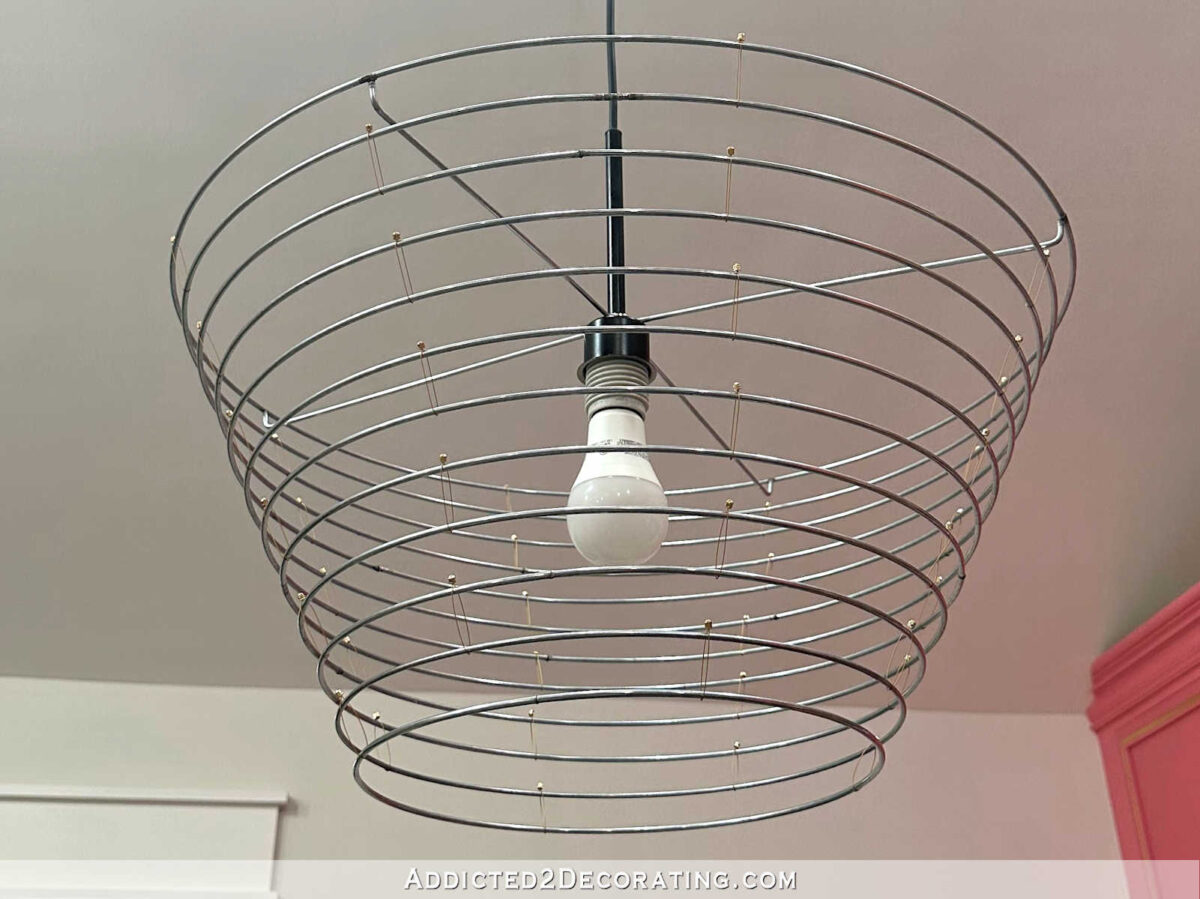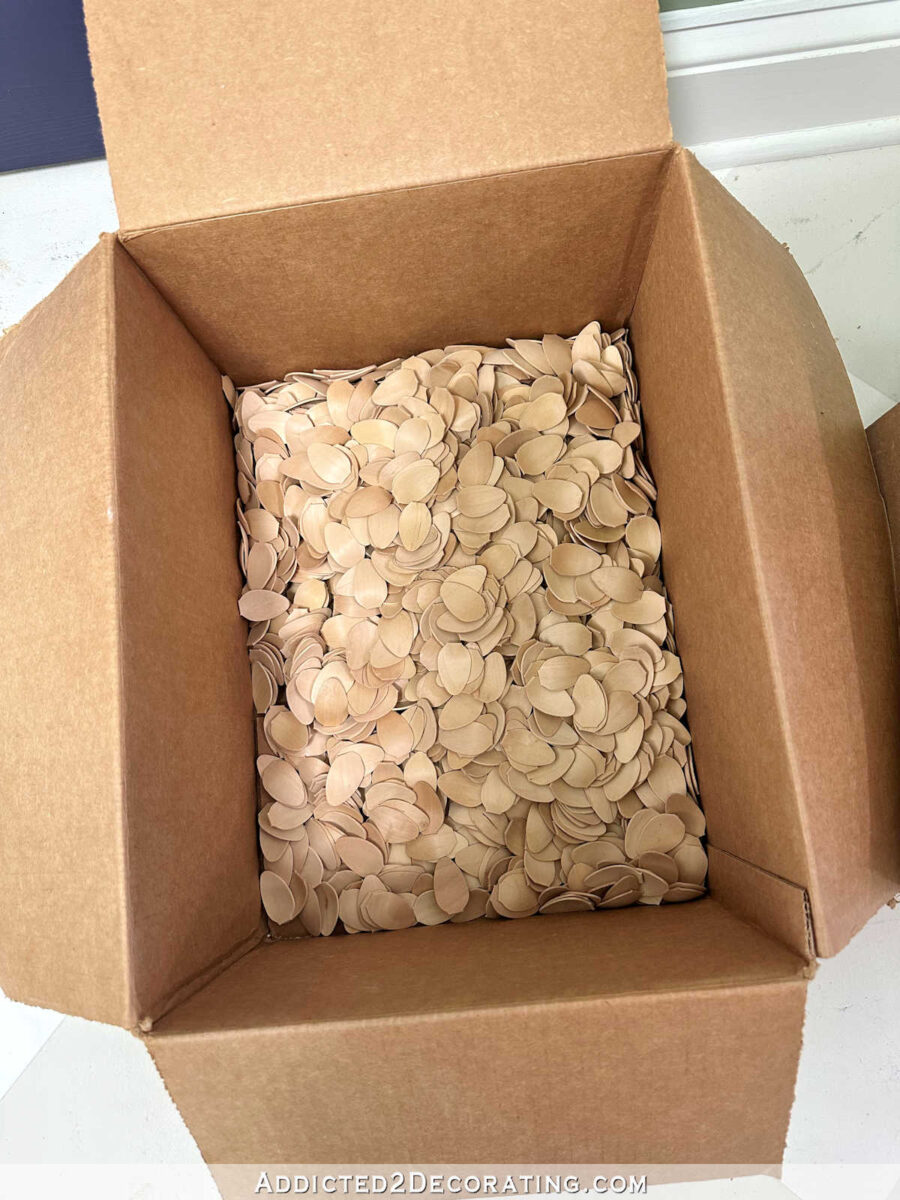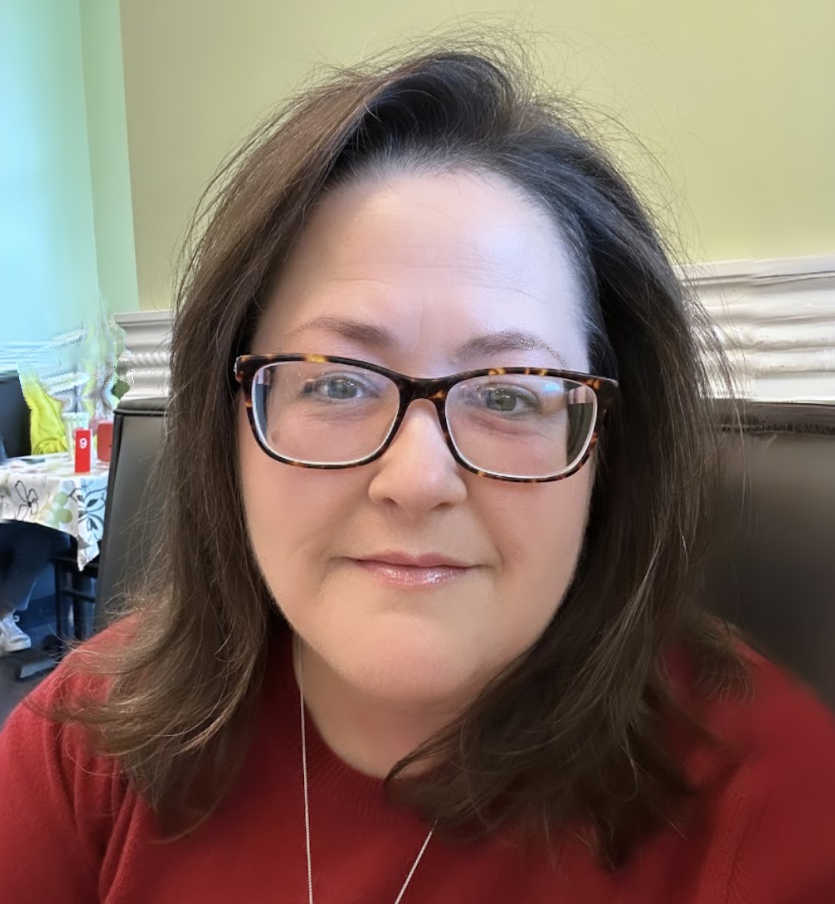[ad_1]
It’s been a while since I shared about the rainbow gradient pendant light I’m making with wood tasting spoons. This light goes over my desk in the office area of the studio and I’m basically taking the idea I used for my favorite piece of art I made and recreating it as a pendant light.
Check out my favorite piece of art I’ve made so far here. I made this in 800 tasting spoon bowls after cutting off the handles.

I shared part 1 of this gradient pendant light project a while back. I built a frame for it from 15 lampshade rings, beading wire and screw-on crimp beads.


This light took more tasting spoon bowls than the artwork did, so I tackled them as I had time. I’ve already cut all the spoon handles I need, so I’m taking an hour here and there to sand the spoon bowls to get them ready for primer and paint.


So that brings me to yesterday. We spent most of the day yesterday without power due to the storms, so by the time our power came back on, I didn’t have much time to get most of the work done. So I decided to play with paint!
I bought some colors to use in my pendant light and I needed to use some of those paints to create a 15-color rainbow gradient for the pendant light. I bought six colors, all Americana brand craft paint: Tuscan Red, Royal Fuchsia, Cadmium Yellow, Hauser Light Green, Peacock Teal and Purple Pizzazz. When I lined them all up, I realized I forgot the orange color, so I reached into my craft paint and grabbed a folkart pumpkin to fill in the gap.


Since I need 15 colors for my pendant light, I lined up 15 small cups for paint.


Then I added the seven colors I had to every other cup.


And then I started the fun part – mixing the paint to create a gradient from one color to another. To do this, I mixed equal parts of each color in an empty cup between those colors. For example, in the second cup, I mixed equal parts Tuscan Red and Royal Fuchsia.


I continued this process until I filled all the empty cups. For the last two empty cups, I basically reverted to red. So the first one is purple (which I lit with white) with a little red added. The final cup is purple, with a little white and more red added.


With all 15 cups filled, I was ready to test the gradient. This is how it looked.


It’s a good start, but there are some obvious problems. That third color stood out like a sore thumb to my eyes. I decided to remove the pure color entirely, but kept it to blend with the neighboring colors. The yellow looked very bright. The transition between yellow-green and green looked very sharp. The same goes for the transition between turquoise and blue. And that last color is completely missing.


So I mix it up again. I removed that third paint color, but mixed a bit of it with neighboring colors to smooth the transition. I did more mixing to smooth other transitions with yellows and greens. I added green and white to the yellow to tone it down. Then I removed that last problematic color and mixed a completely new one, leaving the red color entirely.


This second attempt is definitely better, but it still has some issues. The first red seemed too dark. The transition between the coral/pink color and the orange color is very drastic. And the transition between turquoise, blue, and purple isn’t working for me. In the end, that last color didn’t look too different from the one next to it.


So on my third attempt, I softened the first red with a little white and just a touch of that fuchsia that was removed before the lineup. To soften the transition between the coral/pink and the orange, I mixed a bit more orange into the coral/pink and a bit more pink into the orange. Then II smoothed out the transition in those final colors by adding more teal to the purple and added some dark blue (from my stash) and red to the final color to make a dark eggplant color.


And I think the third attempt! I could tweak the colors a bit more, but I think my colors worked for the most part. Now I just need to finish sanding all those spoons so I can paint them! This ended up being the most time-consuming art project I’ve ever done. I sure hope it’s worth it!

Addicted 2 Decorating shares my DIY and decorating journey as I renovate and decorate the 1948 Fixer Upper that my husband, Matt, and I purchased in 2013. Matt has MS and is unable to do physical activity, so I do most of the housework myself. You can learn more about me here.